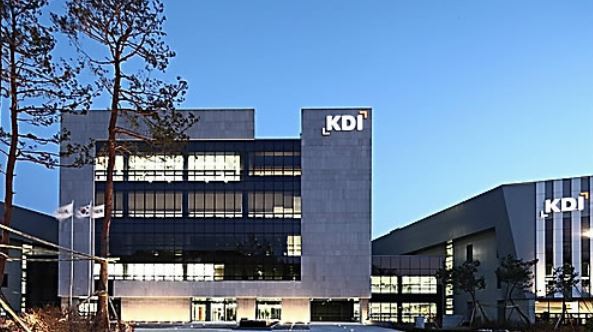Export growth continues but private spending remains stagnant: KDI
By YonhapPublished : Oct. 10, 2018 - 13:15
South Korea's exports remain bullish, helped by the robust shipment of semiconductors, but domestic demand is stagnant due to sluggish facility investment and weak employment, a state-run think tank said Wednesday.
"Export growth maintained a favorable growth trend led by semiconductors. But the domestic situation remains stagnant due to reduced investment and weak employment," the Korea Development Institute said in its monthly evaluation of the country's economic conditions.

The think tank said September's exports receded temporarily due to the Chuseok holiday arriving earlier than last year but continued the upward trend on a daily average basis.
"However, both facilities and construction investment continued to slide and the slowdown in employment persisted," it said.
The country's industrial output rose 2.5 percent in August compared with a year earlier, following a 1.0 percent on-year rise the previous month.
Retail sales gained 6 percent in August from a year earlier, accelerating from the previous month's 5.7 percent on-year rise.
The services production index gained 1.6 percent in August, compared with a 2.1 percent on-year rise the previous month.
In August, job additions reached 3,000, slowing from July's 5,000.
Facility investment dipped 11.2 percent in August, following the previous month's 10.1 percent on-year decrease.
On the export front, the country's exports slipped in September compared with a year ago due to fewer working days and a high base effect, despite the high daily volume of products shipped abroad.
Outbound shipments reached US$50.58 billion last month, down
8.2 percent from a year ago, according to the data compiled by the Ministry of Trade, Industry and Energy. Average daily exports reached $2.69 billion in September, constituting a record high.
There were only 19.5 working days in September this year due to the Sept. 24-26 Chuseok holiday, resulting in four fewer days compared with September 2017. (Yonhap)







![[Graphic News] More Koreans say they plan long-distance trips this year](http://res.heraldm.com/phpwas/restmb_idxmake.php?idx=644&simg=/content/image/2024/04/17/20240417050828_0.gif&u=)
![[KH Explains] Hyundai's full hybrid edge to pay off amid slow transition to pure EVs](http://res.heraldm.com/phpwas/restmb_idxmake.php?idx=644&simg=/content/image/2024/04/18/20240418050645_0.jpg&u=20240419100350)






![[From the Scene] Monks, Buddhists hail return of remains of Buddhas](http://res.heraldm.com/phpwas/restmb_idxmake.php?idx=652&simg=/content/image/2024/04/19/20240419050617_0.jpg&u=20240419175937)

![[KH Explains] Hyundai's full hybrid edge to pay off amid slow transition to pure EVs](http://res.heraldm.com/phpwas/restmb_idxmake.php?idx=652&simg=/content/image/2024/04/18/20240418050645_0.jpg&u=20240419100350)

![[Today’s K-pop] Illit drops debut single remix](http://res.heraldm.com/phpwas/restmb_idxmake.php?idx=642&simg=/content/image/2024/04/19/20240419050612_0.jpg&u=)